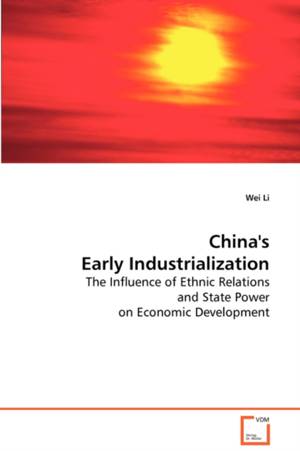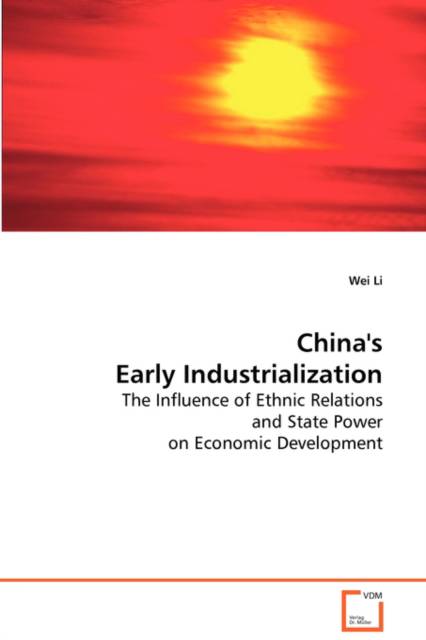
- Afhalen na 1 uur in een winkel met voorraad
- Gratis thuislevering in België vanaf € 30
- Ruim aanbod met 7 miljoen producten
- Afhalen na 1 uur in een winkel met voorraad
- Gratis thuislevering in België vanaf € 30
- Ruim aanbod met 7 miljoen producten
Zoeken
China's Early Industrialization
The Influence of Ethnic Relations and State Power on Economic Development
Wei Li
Paperback | Engels
€ 67,45
+ 134 punten
Omschrijving
China's early industrialization (1865-1895) is ofgreat importance to theories of economicdevelopment. This book examines why China'sindustrialization was slow compared to contemporaryJapan's. The author argues that China's tardyeconomic development was due to ineffectivegovernment leadership. He further explores why theChinese government did not lead China's economicdevelopment effectively. The Manchu question-Manchurule of Qing China and Manchu supremacy over otherethnic groups-triggered ethnic rebellions betweenthe early 1850s and the early 1870s, which severelyundercut the power of the government. Ethnicrebellions in turn were caused by the government'sunequal ethnic policies that had established anethnic hierarchy in the empire. Moreover, betweenthe 1860s and 1890s the government spent adisproportionate amount of its revenue tofinancially support the Manchus leading toinsufficient governmental investment in modernprojects. Sociologists, political economists, andhistorians of China and Japan will find this bookinformative.
Specificaties
Betrokkenen
- Auteur(s):
- Uitgeverij:
Inhoud
- Aantal bladzijden:
- 192
- Taal:
- Engels
Eigenschappen
- Productcode (EAN):
- 9783639068245
- Verschijningsdatum:
- 8/09/2008
- Uitvoering:
- Paperback
- Formaat:
- Trade paperback (VS)
- Afmetingen:
- 152 mm x 229 mm
- Gewicht:
- 263 g

Alleen bij Standaard Boekhandel
+ 134 punten op je klantenkaart van Standaard Boekhandel
Beoordelingen
We publiceren alleen reviews die voldoen aan de voorwaarden voor reviews. Bekijk onze voorwaarden voor reviews.







